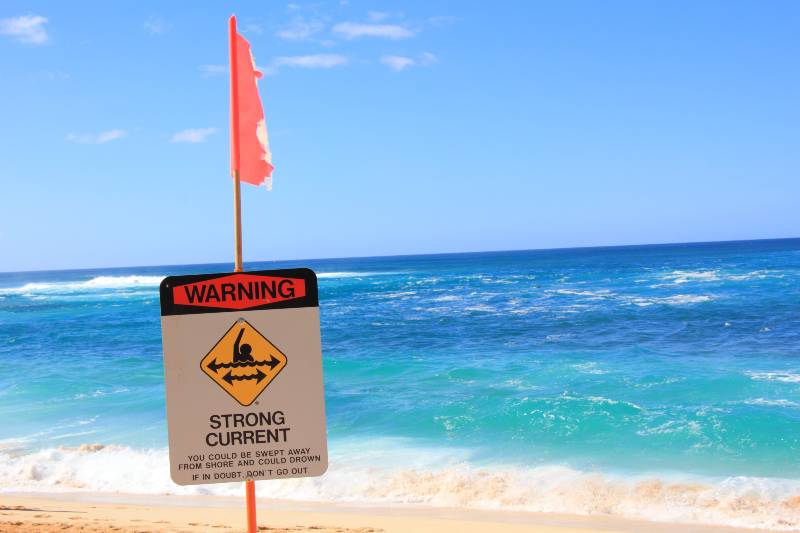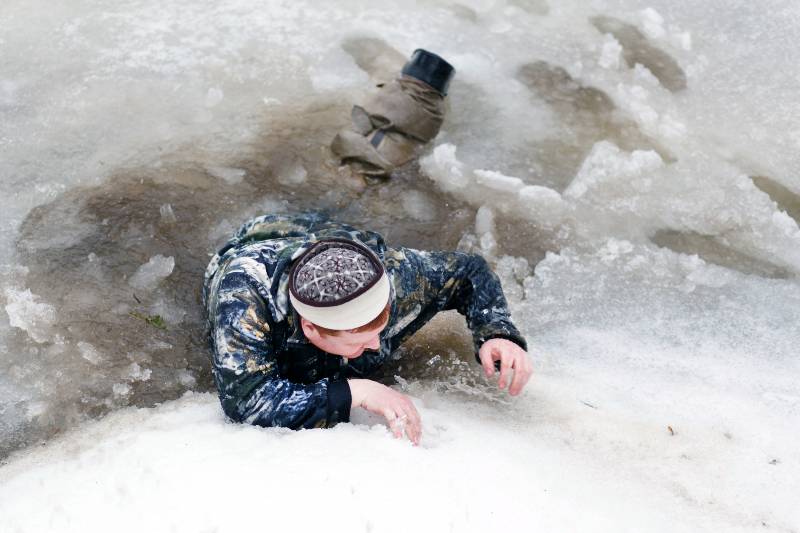If you have ever been in a life-or-death situation, then you know how important it is to have a plan.
Most of us hope that we never need it, but many survival strategies can help keep you alive when seconds count – this article should serve as your go-to guide – in advance – if every second counts and time is running out.
Here are 15+ survival strategies when time is of the essence – for any scenario from home accidents to natural disasters – these tips will be essential, whether or not they save your own life.
In this article:
- How to Survive a Falling Elevator
- How to Survive an Avalanche
- How to Survive a Tsunami
- How to Survive a Moose Attack
- What to Do in a Black Bear Attack
- Emergency Water Landing
- What to Do if You Get Caught in a Fire
- How to Get Out of a Rip Current
- How to Survive Falling Through Thin Ice
- What to Do if Car Breaks Down – on Railway!
- Car Broke Down What to Do
- What Happens When You Get Struck by Lightning
- How to Survive a Thunderstorm
- Electrical Safety
- How to Treat a Snakebite
Related: How To Have Potable Water Anywhere | Emergency Preparedness
15+ Survival Strategies When Time is of the Essence
How to Survive a Falling Elevator Survival Strategies

When it comes to survival strategies, jumping from a falling elevator is not the best idea – you might think that if you jump before the elevator hits the ground, your body will be less damaged – not accurate since the metal walls of the elevator would prevent you from seeing through it – also, even if you manage to jump, it is not enough to guarantee survival!
Merely standing and hoping for the best is never a good plan for surviving a falling elevator as well -it is a must to know what you are dealing with and what to do if a fall occurs – there are no good outcomes ahead – when the impact happens, a weight ten times greater than your own body will drop on your legs – what would be your survival strategy?
Your best chance for survival is to lie flat on your back – your delicate bones would probably break – it mostly depends on how high up you were when the cable broke – but it may help you avoid more significant injuries – or not- nobody knows for sure.
Most people would not think logically when in an emergency – but when the elevator reaches ground level, you should put your hands over your head – because the elevator is likely to be destroyed – to keep your head protected from debris – may save your life!
How to Survive an Avalanche

Spit may mean the difference between life and death if caught in an avalanche – avalanches are rare, but they are deadly – if you do not know what you are doing – facing a terrifying, blinding avalanche that may cover you in snow and suffocate you- is not easy – but every second is crucial to survival, as is remaining calm in the face of disaster.
What to Do if Caught in an Avalanche
At the first indication of an avalanche, thrash about as though your life depends on it – because it does – you’re more likely to survive by keeping afloat – swim or thrash to stay atop the slide and snow.
If caught in the snow, keep one arm straight above your head to protect you – it may help you tell up from down, which can be tricky if you’ve been tossed and disoriented – if blessed, your gloved hand left sticking out of the snow – will make it easier for rescue workers to discover you.
Create an air pocket in front of your face as soon as possible- people suffocate in avalanches after the snow becomes too compact- air pocket will allow you to survive long enough for help to arrive.
An air pocket may also provide a space for this sleight:
- Make a little hole around your face.
- Spit in the air pocket and see where gravity takes your spittle- make your way out by digging opposite it.
Learn more on how to survive an avalanche here.
How to Survive a Tsunami

A water line abnormally far from the shore is a sign of a tsunami coming – if you suddenly notice water receding quickly and unexpectedly from a beach exposing the ocean floor, warn everyone around you and get away as fast as you can!
Near the coast or traveling there for the weekend? Know the signs of an approaching tsunami:
Signs of Tsunami Approaching
It might be a roar by the ocean or some other unusual ocean behavior. The water may suddenly drain – showing the ocean floor.
A wall of water may appear on the horizon.
Pay attention to strange changes in animal behaviors. If they unexpectedly group, hide in different nooks, leave the area or show extreme anxiety, these may be signs of an approaching natural disaster.
Tsunami Alert
As soon as you hear a tsunami alert, don’t wait for even a second: evacuate immediately!
- Leave behind your personal belongings and papers. Now is not the time to think about your possessions.
- Gather your loved ones and use any available transport to get away from the coast.
- Hop in your car, get on a bike, or run as fast as you can!
- Move as far away from the shore as you can – heading toward high hills, mountains, or a forest – go at least 100 feet above sea level and 2 miles inland – if you can – The 2011 Japanese tsunami reached a height of 133 feet and may have gone six miles inland.
If trapped by the rising water, choose the highest and most solid building and climb to the top – it’s not an ideal way out – since the construction can collapse – under the force of the tsunami waves -at least it’s something.
Tsunamis Aftermath
The post-tsunami world is a dangerous and confusing place. You may struggle to find your way back home as roads often get eradicated by the wave, leaving you stranded anywhere within range of its receding waters!
You may find yourself in a difficult situation after the tsunami has passed.
Tsunami Earthquake
In most cases, tsunamis and earthquakes are closely-linked together.
Flee to open areas – with no or few buildings – to avoid being hit – by falling debris.
The best way to avoid injury is by staying away from anything that may collapse or shift during an aftershock -this includes power lines, walls, and bridges as well! Even sturdy-looking constructions are at risk to collapse – so be careful!
Learn more on how you can survive a Tsunami here: Tsunami Preparedness | Survival Life Tips.
How to Survive a Moose Attack

If you are under attack by a moose, try to hide behind a tree – hiding behind a tree will cause the moose to lose you – since moose have a blind spot in their peripheral vision.
Listen to this Survival Podcast for a guide to Moose Hunting: Guide to Moose Hunting [PODCAST].
What to Do in a Black Bear Attack

If a black bear is chasing you, do not turn your back or try to ride – both of these actions can make them hostile.
How to Survive a Black Bear Attack
- Lie flat on your stomach to protect your organs.
- Cross your hands behind your neck to guard your arteries to convince the bear you do not pose any threat.
- Also, do not climb a tree – a black bear does it better than you!
Get more survival strategies on Bear Attack with these Best Safety Measures While Camping.
Emergency Water Landing

Emergency Landing on Water
In an emergency water landing, do not inflate your life jacket before getting out of the plane -or you will end up not being able to move without help – floating up to the cabin ceiling!
Take a deep breath and swim out of the plane- taking your deflated life jacket with you only when out, should you pull out your inflation cord.
Check this out for survival strategies in the open ocean: Could You Survive The Open Ocean?
What to Do if You Get Caught in a Fire

If you are in a fire, keep low to the ground – the deadliest threat comes not from the fire itself – Smoke goes up since it is lighter than air – Avoid breathing the smoke by staying close to the floor as much as possible!
How to Get Out of a Rip Current

How to Swim Out of a Rip Current
If in a rip current, do not try to fight it and swim straight back to the shore- it will just exhaust you – try to swim parallel to the shore until you exit the current – move only toward once you are outside the current.
Get more Riptides survival strategies and learn How To Survive When The Tide Turns Against You here.
How to Survive Falling Through Thin Ice

If on thin ice, and there is no one to help you: Lie down on your stomach and spread out your arms and legs – if you have ice picks, use them as a grip to get back to safety – but if none, roll away in the same direction you came from – to spread out the weight of your body evenly.
Check this out for safety tips on how to walk on ice.
What to Do if Car Breaks Down on Railway

Get out of your car pronto! – run towards the oncoming train – and keep running in the same direction – do not follow the same track direction as the train – run against it to avoid the debris of your late car!
Car Broke Down What to Do

What would your survival strategy be if your car broke down miles from civilization with no phone or radio to contact for help?
A spare tire could be your lifesaver – burn your spare tire to generate a thick black smoke visible from miles away – given the right conditions – someone will notice your SOS signal.
But remember this: Never stray far away from your car – rescuers often find undamaged deserted cars while drivers who left them in search of help- do not survive.
What Happens When You Get Struck by Lightning

Stay away from a spot hit by lightning – a second strike is most likely coming!
Trivia: The saying- Lightning does not strike the same place twice – is a myth – lightning does strike the same place again – in fact, and frequently- especially if it is a tall and isolated structure like the Empire State Building!
Fun Fact: The Empire State Building antenna is struck by lightning an average of 25 times each year.
If your hair stands on end, you are about to be struck by lightning! Kneel and bend forward, but do not lie flat on the ground – wet ground is a good electricity conductor.
How to Survive a Thunderstorm

If outside in a thunderstorm, do not be a lightning rod – this is fatal!
- Do not project above the surrounding area.
- Do not stand on a hilltop, in an open field, or along a beach.
If swimming or near water, get out of the water and away from the coast.
Electrical Safety

If you have to check if something is electric and your only choice is to touch it with your bare hands, use the back of your hand!
If you use your palm to touch it, you will be electrified in seconds without any fight at all – using the back of your hand will allow you to snatch it back in case what you checked is electrified.
How to Treat a Snakebite

- First and foremost: Move past the snake’s striking distance – you don’t want to be bitten again for the second time!
- Second: Do not chase after the snake but remember its color and form so you can describe it (when it is time for treatment.)
- Remain calm and still to keep the venom from spreading – most snake bites don’t lead to envenomation.
- Remove anything that might constrict you (jewelry, clothing) before you begin to swell.
- Position the sting at or below the level of your heart.
- Phone an ambulance.
- Wrap above and below the wound with an elastic bandage – tight but not so tight to stop blood circulation – do not apply a tourniquet – keep checking toe colors or fingers if in doubt.
- Immobilize the limb with a splint if you have one – snake venoms are large molecules and generally do not enter the circulation at the bite site but travel more slowly in the lymphatic system.
- Remember these 7 Rules on Applying First Aid on Snakebites (First Aid Things that You Should Never Do to a Snakebite) – All of these make the snakebite situation much worse.
- Do not use a tourniquet.
- Never use ice to treat snakebites – ice causes the vessels to constrict, causing substantial tissue injury when combined with viper venoms – safer to let the swelling develop and focus on getting to a hospital.
- Do not cut the wound or try to remove the venom – and do not suck out the venom!
- Do not wash the wound – any remaining venom on the skin can help identify the snake.
- Do not drink coffee or alcohol.
- Do not lacerate the bite site with something sharp.
- Do not panic!
Check out more Snake Bite Survival Strategies here and learn How to Treat A Venomous Snake Bite!
So, there you have it – 15+ ways to survive when time is of the essence.
While none of us hope to find ourselves in a life-or-death situation, it is always good to be prepared.
Check out this Video from TA Outdoors for 15 More Survival Strategies and learn 15 Wilderness Bushcraft Skills for Surviving 100 Days Alone in the Wild:
Note: There is a poll embedded within this post, please visit the site to participate in this post’s poll.
While it’s impossible to cover every possible emergency, we’ve tried to provide tips and strategies for you to consider if time is of the essence.
Comment below with your tips or stories on how you’ve used these survival strategies in the past – and don’t forget to share this post with your friends and family – let them know that they can survive anything life throws their way!
You Might Also Like:
- How to Stop a Heart Attack in 30 Seconds
- Winter Power Outage | 10 Survival Tips
- How To Keep Warm Without Power | 9 Ways to Stay Warm When The Power Goes Out

